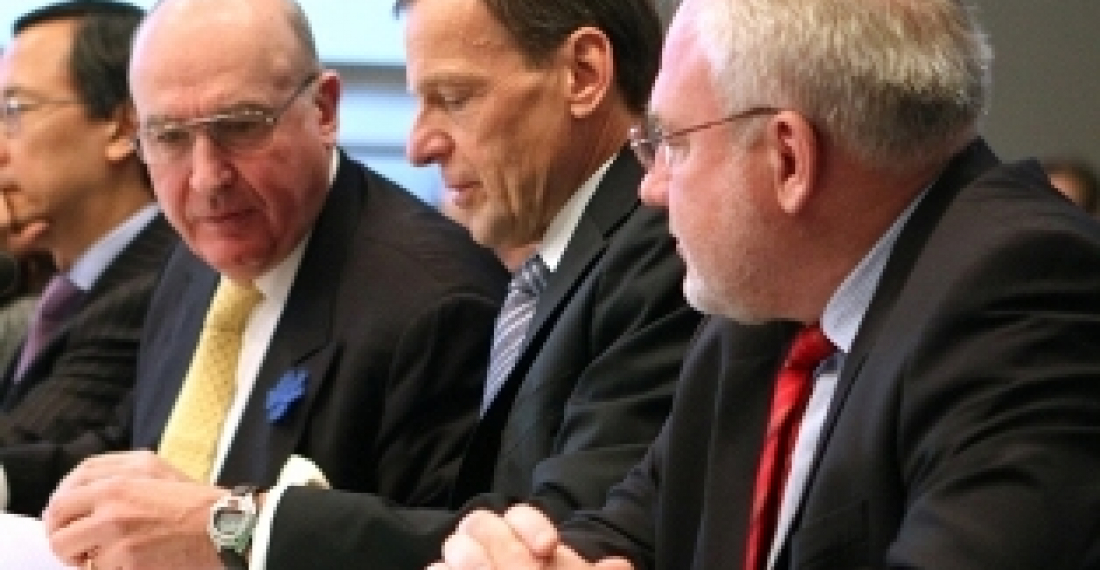The Co-Chairs of the OSCE Minsk Group, Ambassadors Bernard Fassier of France, Robert Bradtke of the United States, and Igor Popov of the Russian Federation, released the following statement today:
"The Co-Chairs of the OSCE Minsk Group (Ambassadors Bernard Fassier of France, Robert Bradtke of the United States, and Igor Popov of the Russian Federation) traveled July 11-18 to Moscow, Vilnius, Baku, and Yerevan. Joined by Ambassador Andrzej Kasprzyk, Personal Representative of the OSCE Chairperson-in-Office, the Co-Chairs met in Moscow on July 11 with Russian Foreign Minister Lavrov to discuss developments in the Minsk Group process to achieve a peaceful settlement of the Nagorno-Karabakh conflict. In Vilnius, the Co-Chairs briefed Foreign Minister Audronius Azubalis on July 13 on the peace process and steps taken since the June 24 summit meeting in Kazan.
In Baku and Yerevan, the Co-Chairs met with Presidents Aliyev and Sargsian, respectively. The Co-Chairs reiterated to both Presidents the importance of reaching agreement on the Basic Principles as the framework for moving to final settlement negotiations. They emphasized that now is the time to demonstrate the political will needed to bring lasting peace, security, and reconciliation to the peoples of the region. The Presidents committed to provide their reactions soon to the most recent formulations proposed for the framework document, and to continue to work with the Co-Chairs and the Co-Chair governments on the process of seeking a peaceful settlement."
ARMENIA-MG-OSCE-STATEMENT
ARMENIA-MG-OSCE-STATEMENT







